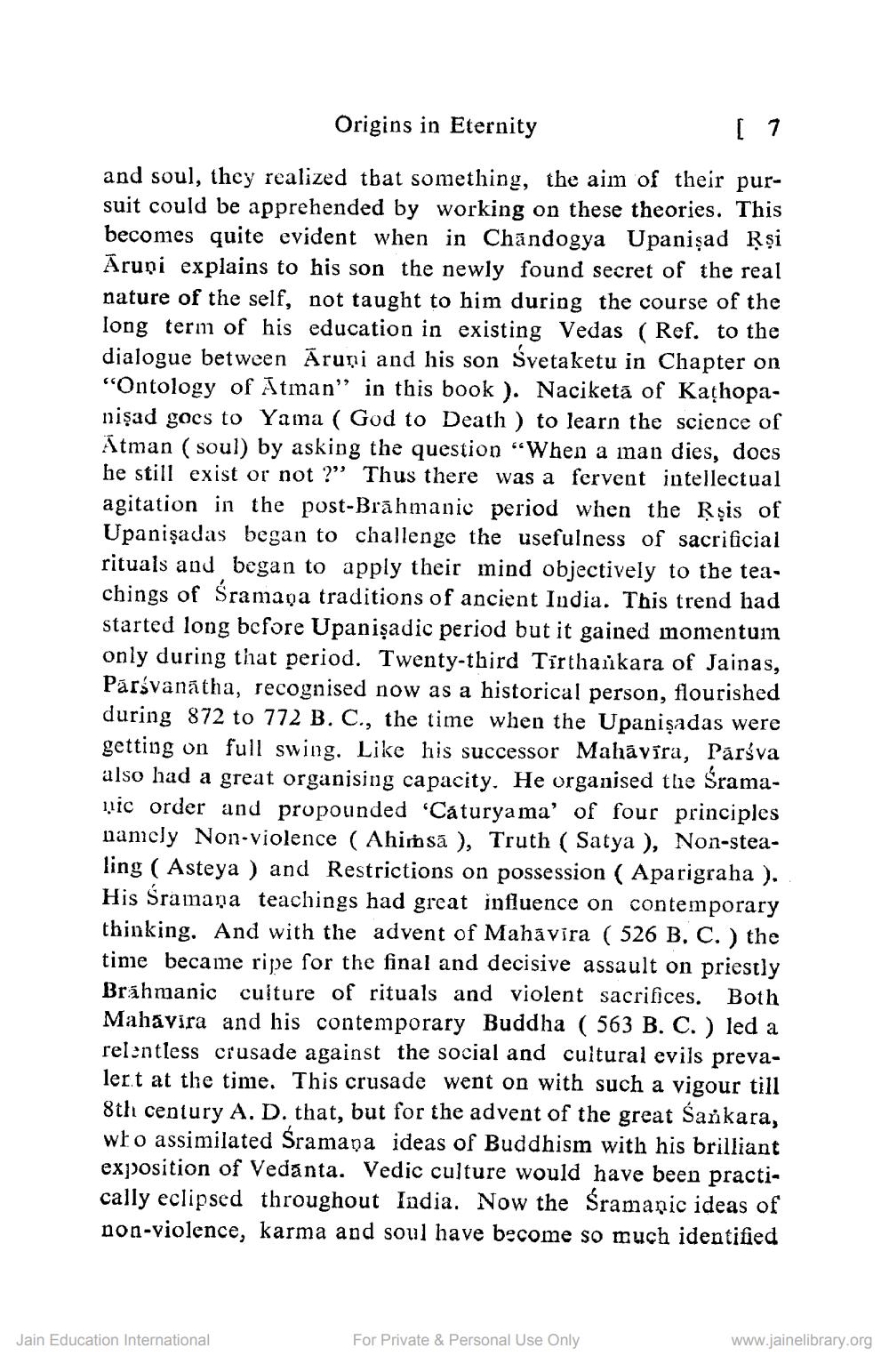________________
Origins in Eternity
[
7
and soul, they realized tbat something, the aim of their pursuit could be apprehended by working on these theories. This becomes quite evident when in Chandogya Upanişad Rşi Ārupi explains to his son the newly found secret of the real nature of the self, not taught to him during the course of the long term of his education in existing Vedas (Ref. to the dialogue between Aruņi and his son Svetaketu in Chapter on “Ontology of Atman” in this book ). Naciketā of Kathopanişad goes to Yama ( God to Death ) to learn the science of Ātman ( soul) by asking the question “When a man dies, does he still exist or not ?" Thus there was a fervent intellectual agitation in the post-Brāhmanic period when the Rșis of Upanişadas began to challenge the usefulness of sacrificial rituals and began to apply their mind objectively to the tea. chings of Sramaqa traditions of ancient India. This trend had started long before Upanişadic period but it gained momentum only during that period. Twenty-third Tirthaikara of Jainas, Párśvanátha, recognised now as a historical person, flourished during 872 to 772 B. C., the time when the Upanişadas were getting on full swing. Like his successor Mahāvīra, Pārsva also had a great organising capacity. He organised the Sramanic order and propounded 'Cáturyama' of four principles namely Non-violence ( Ahimsă ), Truth ( Satya ), Non-stealing ( Asteya ) and Restrictions on possession ( Aparigraha ). His Sramana teachings had great influence on contemporary thinking. And with the advent of Mahavira ( 526 B, C. ) the time became ripe for the final and decisive assault on priestly Brahmanic culture of rituals and violent sacrifices. Both Mahavira and his contemporary Buddha ( 563 B. C.) led a relentless crusade against the social and cultural evils prevalert at the time. This crusade went on with such a vigour till 8th century A. D. that, but for the advent of the great Sarkara, who assimilated śramaņa ideas of Buddhism with his brilliant exposition of Vedanta. Vedic culture would have been practically eclipsed throughout India. Now the Sramanic ideas of non-violence, karma and soul have become so much identified
For Private & Personal Use Only
Jain Education International
www.jainelibrary.org




